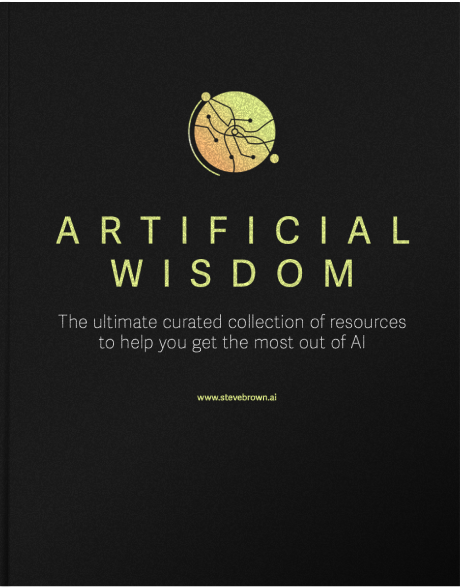AI in Education: Education in a Post-labor World
Will AI and automation eventually lead to mass unemployment? If AI does most of the work, will people still feel motivated to seek a high-quality education or education of any kind? Will the role of education change in a post-labor world? Could a decline in people’s education use lead to humanity's atrophy? These are some of the questions I plan to explore in this post. My recent posts have been about AI in education. This time, let’s talk about how AI could ultimately change the entire focus of our educational system.
Our Post-labor Future
Imagine a world where sophisticated machines do almost all the work. Knowledge work is done by powerful AIs as capable as any human at any task. Advanced robots do all the physical work in manufacturing, warehousing, transportation, agriculture, mining, forestry, construction, maintenance, waste collection, and healthcare. Most human labor has been eliminated. The cost of goods and services has plummeted, leading to an age of abundance. Most people have entered a post-labor era. Society has rewired itself with a new economic structure such that people have what they need to thrive, whether it be through a universal basic income, reverse income tax scheme, or some other method. In a world where the cost of goods and services has significantly reduced, this task might be much easier than we imagine today.
Some jobs remain. These are the high-touch, experiential jobs where the core of the experience is about human-to-human connection. In these roles, unique human qualities are valued and essential. For example, nobody wants to be told they have stage three liver cancer by a robot. High-end restaurants are still staffed by people who can tell you they tried the special, and it’s delicious. The performing arts have human dancers, musicians, comics, stage actors, and entertainers. Massage therapists, teachers, clinicians, social workers, caregivers, bartenders who fail to make eye contact when you’re trying to order, sports coaches, and hair stylists all still exist.
But there aren’t enough high-touch service jobs for everyone to work, and most people are unemployed or underemployed, though financially comfortable. In this world, the demand for higher education has collapsed. Once seen as a necessary gateway to secure lucrative job opportunities, status, and financial security, higher education has become an oddity of the past.
Of course, education has never only been about preparing people for the world of work. As they journey through the educational pipeline, students gain social skills, communication skills, confidence, self-awareness, and more. In our imagined post-labor world, what is the new role of education? If machines do 90% of the work, will people still invest the time and money to put themselves through the educational system? If artificial general intelligence outperforms human beings in all the main intellectual pursuits—engineering, scientific research, business management, entrepreneurship, innovation, design, and so on—and robots have the manual dexterity and mobility needed to handle not only all the boring, repetitive, and dangerous physical work but also vocational work that requires training and experience—robot electricians, dental hygienists, welders, and chefs—will people take time to learn anything anymore? I hope so.
Many people will still thirst for knowledge, driven by curiosity and a desire to learn about the world, but many others will feel no such desire or compunction. Pixar’s 2008 animated classic, Wall-E, portrays a world where overweight people travel around in floating chairs and have their every whim and need met by omnipresent technology. Is this the existence we must look forward to?
My Greatest Fear: Identity Collapse

As a futurist focused on artificial intelligence, I’m often asked what my biggest AI-related fears are for the future. Most expect me to talk about Terminators or p(doom), short for “the probability of doom,” which is the probability of an AI safety issue leading to the extinction of our species. We should be concerned about such things and make sure we develop AI systems with great caution, but my primary fear is NOT an AI that decides we’re getting in its way or that we are no longer relevant and need to be exterminated. I do worry that AI will turn us against each other by amplifying the efforts of those spreading disinformation and misinformation. But that’s worry no.2. My main worry is that AI will strip meaning from our lives, leading to an epidemic of depression, substance abuse, and in some cases, suicide.
The next time you go to a party or some other social gathering, watch how long it takes before someone introduces themselves and asks, “So, what do you do?” Our identities are constructed from many facets—our musical tastes, the teams we support, the hobbies we enjoy, our belief system, our values, and so on—but a huge part of identity, particularly in the United States, is what we do for work. Take that away, and many people will be left floundering. Consider people who undergo forced retirement or a binary retirement (last day of work on a Friday, no work for the rest of their lives starting on Monday, with no gentle tail down), and what a shock this is to the system. Some people never recover from this dramatic change and the removal of a central pillar of their feeling of self-worth and purpose. Imagine that most of the population, spanning all working ages, becomes unemployed with no prospect of work. What will that do to people’s identity and sense of self? How will people fill their time? COVID demonstrated that some people will thrive in this environment while others will languish and suffer long-term mental health problems.
AI in Education
What does this all mean for the education sector and for society? Academia will need to pivot and respond to the marketplace's changing needs. More on that in a moment. Society will need to reevaluate the role of knowledge in our lives. We must learn to perceive the pursuit of knowledge and gaining insight and wisdom as key ingredients to personal fulfillment and the ability to enjoy life rather than as a means to an end that must be endured to pass exams. Education will need to shift its curriculum to focus on teaching people a broad set of topics that enrich their lives. It will have to redesign pedagogy (again) to fit in with people’s life schedules. No more three- and four-year degrees with long holidays. The future need will be for courses of various lengths, available on demand and on a schedule that suits the student.
Education will also need to help people figure out who they are and what interests them. In a post-labor world, many people will feel utterly lost and struggle to make meaning in their lives. The notion of a 70s-style future utopia filled with leisure time where everyone has a super-duper time and lives a life of abundance and happiness won’t happen unless people get help figuring out how to fill their time and lives with meaning.
Your Personal Challenge: Defining ‘Life 2.0’
Many people stumble into careers and then stay with them for their entire lives because they can’t think of anything better to do. We will need a whole sector of the educational world devoted to what I call “Life 2.0,” helping people figure out what to do with their lives so they can fill them with meaning. For some, it will be creative pursuits, such as writing, painting, building expansive VR worlds with AI tools, gardening, cooking, etc. Some will enjoy playing games, socializing, caring for relatives, playing a musical instrument, traveling, playing sports, and engaging in other activities. But for many, it will be learning new languages (though real-time translators will have made that unnecessary), exploring science (just for the sake of it), understanding history, and developing new skills that create meaning in our lives. Learning for learning’s sake, to make yourself a more well-rounded and interesting person.
If we fail to embrace this new education model, we will risk becoming like the people in Wall-E, unable to care for ourselves, infantilized by the AI our ancestors built, with atrophied minds and hollow lives.
Yet again, we will find that education is central to human vitality and the long-term health of our species.

The unlimited curated collection of resources to help you get the most out of AI
#1 AI Futurist
Keynote Speaker.
Boost productivity, streamline operations, and enhance customer experience with AI. Get expert guidance directly from Steve Brown.
.avif)












































































